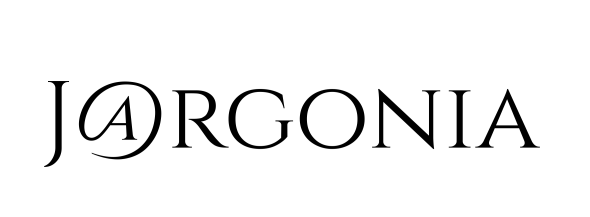J@rgonia
J@rgonia is an electronic, peer-reviewed open access journal. Its main scope is to publish articles, review articles, dissertation lectures (lectio praecursoria), conference and seminar reports and book reviews written by postgraduate students, post doctoral and senior researchers of ethnology, history, folklore and related fields. J@rgonia was established in 2003 by the Department of History and Ethnology (Hela) at the University of Jyväskylä. J@rgonia is published by Historian ja etnologian laitoksen tutkijat ry (Registered Association of Hela Researchers) and Jyväskylän Historiallinen Yhdistys ry (Historical Association of Jyväskylä). Our journal is ranked on the Finnish scientific Publication Forum (level 1).
J@rgonia is published twice a year, in May and in December. Articles are published in Finnish and in English. All articles must be original, previously unpublished. J@rgonia has the right to publish article´s original version in their website. J@rgonia does not have article processing charges (APCs) or article submission charges. However, English-language translation and/or proofreading is the sole responsibility of the author. Works published in J@rgonia are licensed under a Creative Commons Attribution 4.0 International License. Writers will retain the copyright of their work and may self-archive them in their institutional repository (e.g. university). J@rgonia is an open access journal which means all content is freely available on the internet to all users immediately upon publication without charge. Use and distribution, including reading, downloading, printing, searching or linking to the full texts in any lawful purpose is permitted without asking permission from the publisher or author, provided the author and journal are properly credited and cited.
J@rgonia will promote the principles of the peer-review instructions issued by the Finnish Association of Scholarly Publishing as well as Responsible conduct of research guidelines published by the Advisory Board on Research Integrity (TENK). Reviewers and editors are required to treat manuscripts fairly and in confidence, and to declare any competing interests. Allegations of research misconduct and disregard for the responsible conduct of research (including fabrication, falsification or misrepresentation of observations and results, plagiarism and misappropriation of another person´s results, ideas, plans, observations or data as one´s own research) will be reported to Finnish Advisory Board on Research Integrity (RCR process).
Instructions
If you are interested in offering an article to be published in J@rgonia, please send an abstract (200–400 words) or a manuscript (40 000–50 000 characters with spaces) as an attachment to Editors-in-Chief, Mr. Petteri Impola (petter.s.impola[at]jyu.fi) and Mrs. Liia-Maria Raippalinna (liia.m.l.raippalinna[at]jyu.fi). Use doc-, docx- or rtf-format, Times New Roman 12-point font size with 1.5 line spacing, alignment left. Articles are formatted with Chicago Manual of Style.
Abstract should include:
• Background: description of articles topic and relevance; why is it worth of research?
• Research problem and -questions
• Scientific context: theories, models and concepts
• Research materials and methods
• Results: how does article answer to research questions and what is article´s contribution to previous research?
• 5–8 key words
When the article is accepted, the author has three months to complete the first version of the manuscript. Deadlines for submission are 15.1. (Spring edition) and 1.8. (Autumn edition). Use IMRD-structure to construct your manuscript. Article should include:
• Introduction: background, previous research on the topic, scientific context and research questions. Note: Theory chapter with concepts should be separated from the Introduction.
• Materials & Methods. This chapter should also include ethical discussion if the topic is a sensitive one.
• Results: 2–4 analysis chapters.
• Discussion: a brief summary about the research problem, conclusions and possible future research.
Every article goes through a double-blind peer review, in which two anonymous referees, read and comment on the article before publication. Referees, who are called to the task outside of the Editorial Board, are considered as experts on the research subject. The referees´ and author´s identities are concealed from each other throughout the review process.
Evaluation is based on the following criteria:
• Does the article include proper research question and relevant scientific context?
• Does the article include proper theoretical and methodological framework?
• Has the author described his/her research ethics sufficiently?
• Is the article relevant, novel and original? Does it add something new to its field?
• Does the article meet the standards of peer-reviewed journal article including good language and clear structure with sufficient amount of headings?
We kindly ask referees to include one of the following recommendations in their statement:
1. Publish in its current form
2. Publish after minor revisions (with list of required corrections as an attachment)
3. Publish after major revisions (with list of required corrections as an attachment)
4. Reject the article
If the two referee statements are conflicting with each other, J@rgonia can ask a statement from the third referee. When the J@rgonia has received the statements, they will be sent to the author. Author has one month to make the required changes to his/her article. Article might be sent back to a new peer-review, if necessary. The editorial board reserves the right to evaluate and decide which articles will be published, based on the referee statements. English-language translation and/or proofreading are the sole responsibility of the author. The editorial board is responsible for the editing content only, and will return to authors’ the manuscripts whose language does not meet J@rgonia’s standards, asking them to have the language checked before resubmitting the article.
Editors-in-Chief
Petteri Impola (History, University of Jyväskylä), petteri.s.impola[@]jyu.fi
Liia-Maria Raippalinna (Ethnology, University of Jyväskylä), liia.m.l.raippalinna[@]jyu.fi
Department of History and Ethnology
P.O. Box 35 (H)
FI-40014 University of Jyväskylä
Editorial Board
Laura Ipatti (Political History, University of Turku)
Ritva Larva (Cultural History, University of Turku)
Heikki Mikkonen (History, University of Tampere)
Heini Salonen (Environmental and Economic Sciences, University of Helsinki)
Nina Väkeväinen (Ethnology, Anthropology, University of Jyväskylä)
Webpages
Maria Ruotsalainen (web design)
Joonas Tammela (admin, layout)






